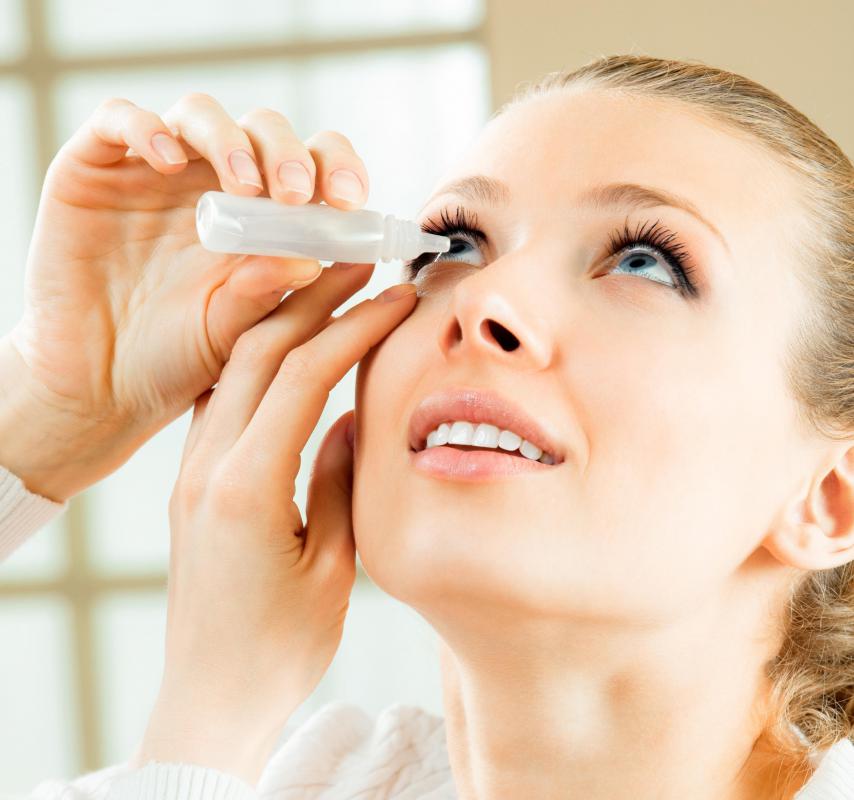At TheHealthBoard, we're committed to delivering accurate, trustworthy information. Our expert-authored content is rigorously fact-checked and sourced from credible authorities. Discover how we uphold the highest standards in providing you with reliable knowledge.
What is Sicca Syndrome?
Also known as Mikulicz and Sjogren’s syndrome, Sicca syndrome is a health issue in which the proper function of the exocrine glands is disrupted. As the condition worsens, sufferers begin to experience dryness in the eyes and mouth. If not treated in time, the illness can interfere with moisture content in various organs of the body, leading to a wide range of serious health problems.
The exocrine glands produce and release hormones into the duct glands. This is in contrast to the endocrine glands, which release hormones into the bloodstream or into target cells that are found near the point of release. Sicca syndrome prevent the production and proper release of hormones into the ducle glands, effectively throwing the normal balance between the hormones produced by the exocrine and endocrine glands out of balance.

The underlying cause of this syndrome is the improper function of the immune system. With this disorder, immune cells attack the cells of the exocrine glands. Slowly, the glands begin to fail in their function of providing proper levels of hydration throughout the body. In its later stages, outward symptoms begin to appear that are mild at first, but continue to worsen. Various types of rheumatic disorders can trigger the immune system dysfunction, or the syndrome can develop on its own for reasons that have not yet been fully understood.

There are two outward symptoms that can indicate the presence of Sicca syndrome. The first is a noticeable decrease in tear production and eye moisture in general. The dry eyes that develop are often painful and over time can mean a loss of vision.
Along with the eye dryness, a noticeable lack of saliva production takes place. As the dryness of the mouth escalates, it begins to affect the ability to swallow, as well as causing damage to the tissues of mouth interior. The constant need to re-hydrate a dry mouth progresses from being a mild annoyance to being a constant necessity.

However, this condition does not stop with affecting the eyes and the mouth. Over time, the disease can cause the skin to begin drying out, making the top layer of skin dry and easily irritated. Interior organs are also at risk, since the continuing decline of the exocrine glands makes it impossible to produce moisture that is needed for the proper function of such key organs as the brain, liver, kidneys, and pancreas. Even the lungs can be adversely affected if the syndrome is not treated.

Diagnosing Sicca syndrome can be done with a blood test. The test will measure the amount of antibodies found in the bloodstream. In particular, the level of anti-nuclear antibodies, ANA, is checked as part of the process. In addition to the blood test, it is also possible to measure the production of tears and determine if the production level is normal or below what is considered a safe amount.
There is no cure for Sicca syndrome. For this reason, treatment focuses on making up for the failure of the exocrine glands and keeping the organs of the body properly hydrated. Artificial tears are administered daily in order to help with dry eyes, while prescription medications like pilocarpine or cevimeline are administered to help increase the flow of saliva to a normal range. Various other medications can help protect internal organs from complications arising from the syndrome.
AS FEATURED ON:
AS FEATURED ON:














Discussion Comments
I have had the two main symptoms for several years - dry mouth and eyes, but am puzzled by the periodicity of it in my case. The inadequate saliva only affects me while I am sleeping, which causes me to believe it is brought on by sleep-related hormonal changes. As well, the keratoconjuctivitis seems to run in cycles. That is, I have periods of about five to ten days where it really plagues me, followed by two or three weeks where it does not. I've asked doctors about these aspects of it, but they seem to have no answers.
Sicca is an autoimmune disorder. If you have family members with any type of autoimmune disorder, it puts you at risk for also developing one. I have Graves, sicca, and reynauds. My mother has graves and her sister and father have hashimoto. His mother has celiac, his niece has ankylosing spondylitis. Genetics are a huge factor in developing an autoimmune disorder.
My mom, sister and I all have it.
I've developed sicca after a bout of shingles, and only found out today.
@Horsies - Sicca syndrome affects about 4 million Americans, mostly women over 40 years old. I've never read anything that says it's genetic. It seems to just develop on its own or following the diagnosis of an associated rheumatic disorder, such as arthritis.
Is Sicca syndrome genetic? Is it very common?
Post your comments